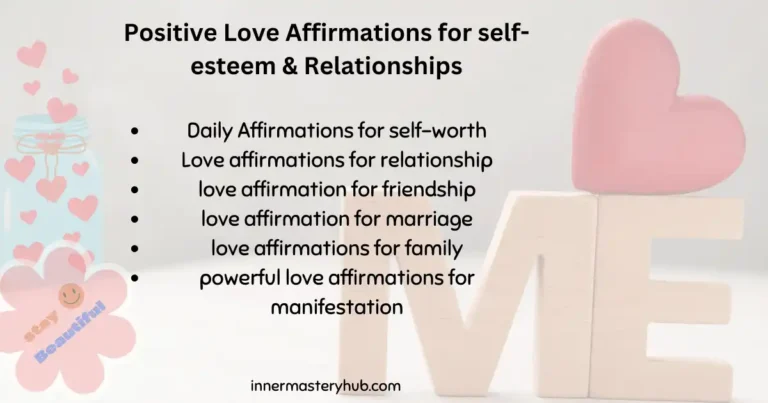WHAT DOES IT MEAN TO “SUFFERING IN SILENCE”?

“Suffering in silence” refers to loss or adversity without talking to others. It also refers to putting up with something without complaining.
People may suffer silently for a variety of reasons. They can feel like no one would understand them, be embarrassed by their circumstances, or fear judgment. They can want to avoid burdening other people with their issues.
It’s debatable whether suffering in quiet is a sign of a healthy individual. There are convincing arguments for both sides of the discussion, thus there is no consensus on whether this is correct.
Going through pain or suffering in quiet demonstrates tenacity, resilience, and independence. It implies that an individual can face adversity on their own and does not rely on others for help. In some situations, such as when dealing with a difficult challenge at work or in their personal life, this can be a valuable trait.
However, some evidence suggests that suffering in silence might harm one’s physical and emotional health. Repressing emotions can lead to stress, anxiety, and depression.
It may also make it more difficult to handle challenging circumstances. Furthermore, it may be challenging to get assistance when needed if suffering is endured in silence.
RELATED: Pent-Up Aggression: Causes, Effects, And 16 Healthy Ways To Manage It
Table of Contents
WHEN SHOULD YOU NOT SUFFER IN SILENCE?
When your health, safety, or rights are jeopardized, you should not be forced to suffer silently. It is vital to speak up and ask for aid in the following situations:
Physical or Emotional Abuse. If you are being abused, whether psychologically, emotionally, or physically, you must seek help and speak out against it.
Mental Health Issues. If you are suffering from mental health problems such as depression or anxiety, you must speak with someone and seek expert help.
Discrimination or Harassment. If you are the victim of discrimination or harassment because of your gender, race, sexual orientation, religion, or any other reason, do not remain silent. Report it and ask for assistance.
Dangerous or Unhealthy Conditions. If you find yourself in a hazardous, unhealthy, or unpleasant situation at work, home, or anywhere else, you must speak up and seek help.
Relationship Issues. If you are having trouble with your friendships or personal connections, get help from friends, family, or a professional counselor.
How To Suffer In Silence
Here are some healthy ways to cope when suffering in silence:
Release your need to be in control.
It might be difficult to let go of the concept that you have to manage everything yourself, especially when you’re going through a difficult time. It appears that you’re attempting to maintain control and a strong grip on everything. However, there are times when we suffer in quiet because we believe we need to tackle things on our own.
The truth is, it’s fine not to feel in control of everything. Opening up and expressing your problems with someone can sometimes be the most courageous thing you can do. When you feel comfortable talking about your problems with someone, it might help to alleviate some of your stress.
Seeking help or admitting that things are challenging is not a sign of weakness. It’s a step towards comfort and relief. Being in charge does not require confronting issues straight on; it also entails knowing when to accept assistance or share the responsibility.
Related Articles: “Understanding Codependency vs. Interdependency: Building Healthy Relationship Dynamics”
RELATED: “Understanding Codependency vs. Interdependency: Building Healthy Relationship Dynamics”
Remember that you are not alone.
When you’re going through a difficult moment and feel like you’re keeping it all to yourself, it may be quite lonely. But the truth is that you are not alone. Even if no one understands, some care about you and want to assist.
It may feel as if the weight you are bearing is solely your responsibility, but this is not the case. There are friends, family members, and even experts who are willing to listen and help. They may not have been through what you are going through, but they may nevertheless provide support, empathy, and, in some cases, practical solutions.
It’s alright to seek out and share your feelings. Speaking out does not imply that you are burdening others; rather, it means allowing them to be there for you. You would do the same for them, right?
RELATED: 3 Subtle Ways Depressed People Self-Sabotage
Become Intimate With Actual Suffering
Recognizing and discussing your challenges can lead to understanding and, eventually, finding strategies to reduce your suffering. When you allow yourself to be upfront about your feelings, it can be a game changer in terms of finding solutions or feeling less alone on your journey.
It is acceptable not to have all the answers or to feel overwhelmed. You notice something upsetting you, but then you realize, “Wait a minute, being intimate with your suffering may also imply that, in comparison to what others are going through, my problem isn’t that big of a deal.” It’s as if you’re adding your discomfort to this comparison scale.
You are not invalidating your sentiments by placing them in perspective. When we meet issues, it is simple to magnify them, but it is far more advantageous to take a step back and realize that they may not be as serious as we first thought.
RELATED: 9 Principles of Social Intelligence That Everyone Can Master
Never express your pain to those outside of your immediate community
There’s this notion that other people’s viewpoints could not be as understanding or wise, which makes confiding in people closest to you appear more desirable.
But it’s also important to remember that occasionally, someone from beyond your neighborhood could offer new views or viewpoints. They might present an alternative viewpoint or even ideas that none of the people in your close group had considered.
A secret is striking a balance between appreciating the security and trust that come from confiding in those closest to you and understanding when it’s appropriate to open up to those outside your inner circle when necessary. It all comes down to evaluating the circumstances and figuring out how best to share your suffering and look for assistance for yourself.
RELATED: 7 Easy Ways To Practice Spiritual Solitude
Why do some people suffer in silence?
There are many reasons when it comes to suffering in silence. Some of the most common reasons include:
Fear of judgment. People may fear being judged or misunderstood if they share their suffering with others. They may worry that people will think they are weak, pathetic, or attention-seeking.
Shame. People may feel ashamed of their suffering, especially due to something they perceive as a weakness or failure. They may feel like they should be able to handle their problems independently and that it is a sign of weakness to ask for help.
Lack of trust. People may not trust others with their suffering, especially if hurt or betrayed. They may worry that people will not understand them or that they will use their vulnerability against them.
Cultural norms. In some cultures, it is considered taboo to talk about suffering. People may be taught to keep their emotions to themselves and that showing weakness is unacceptable.
Lack of awareness. Some people may not be aware that they are suffering or that help is available. They may have normalized their pain, or they may not know how to reach out for help.
It is okay to ask for help when you are struggling. Many people care about you and want to support you.
RELATED: 7 Secrets to a Polished Personality
What happens when you suffer in silence, NEGATIVELY?
It is possible to suffer in silence when you don’t want to share it with others, but sometimes, suffering in silence alone for too long can have some negative consequences for your physical and
Physical health consequences
- Increased stress hormones can lead to high blood pressure, heart disease, and other health problems.
- Weakened immune system, making you more susceptible to illness.
- Headaches, stomachaches, and other physical symptoms.
- Increased risk of substance abuse and self-harm.
Mental health consequences
- Depression
- Anxiety
- Post-traumatic stress disorder (PTSD)
- Suicidal thoughts
- Social isolation
- Decreased quality of life
RELATED: Why People With PTSD Use Emotional Avoidance to Cope
Tips for breaking the cycle of suffering in silence
- Talk to a trusted friend, family member, or therapist.
- Join a support group for people who are going through similar experiences.
- Read books and articles about suffering in silence and how to cope.
- Practice self-compassion and self-care.
- Remember that you are not alone.
- Set realistic goals. Don’t try to change everything all at once. Start with small, achievable goals and build from there.
It takes time and effort to
My Favourite quote is “Suffering in silence.”
Here are some of my favorite quotes about suffering in silence:
- “The most terrible poverty is loneliness and feeling unloved.” – Mother Teresa
- “The only way out of the pain is through it.” – Joseph Campbell
- “The wound is the place where the light enters you.” – Rumi
- “It is not the event itself that will cause me pain, but rather my judgment about the event.” – Epictetus
- “The only way to heal the wound is to feel it fully.” – Osho







